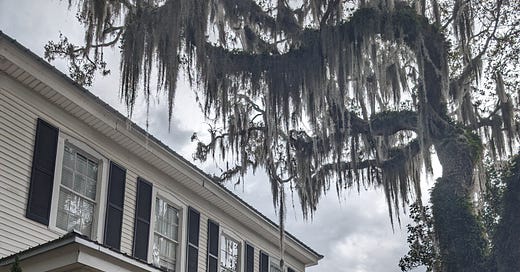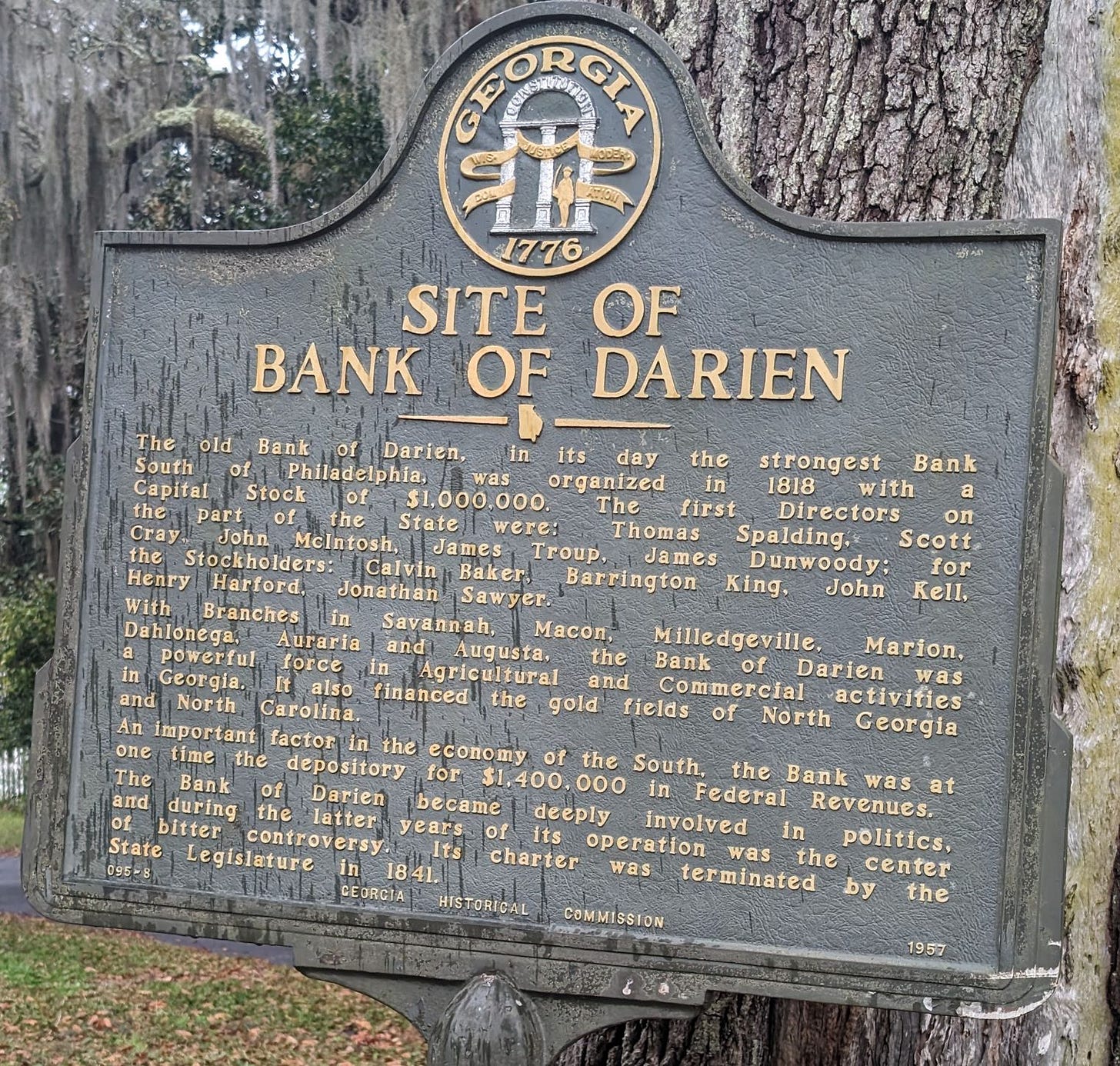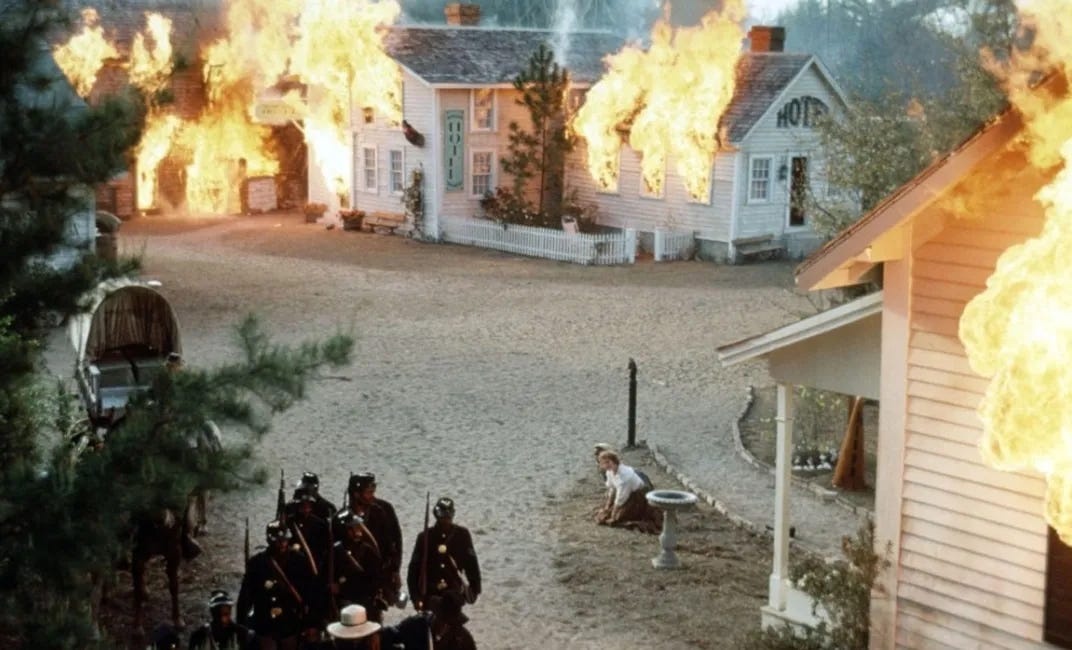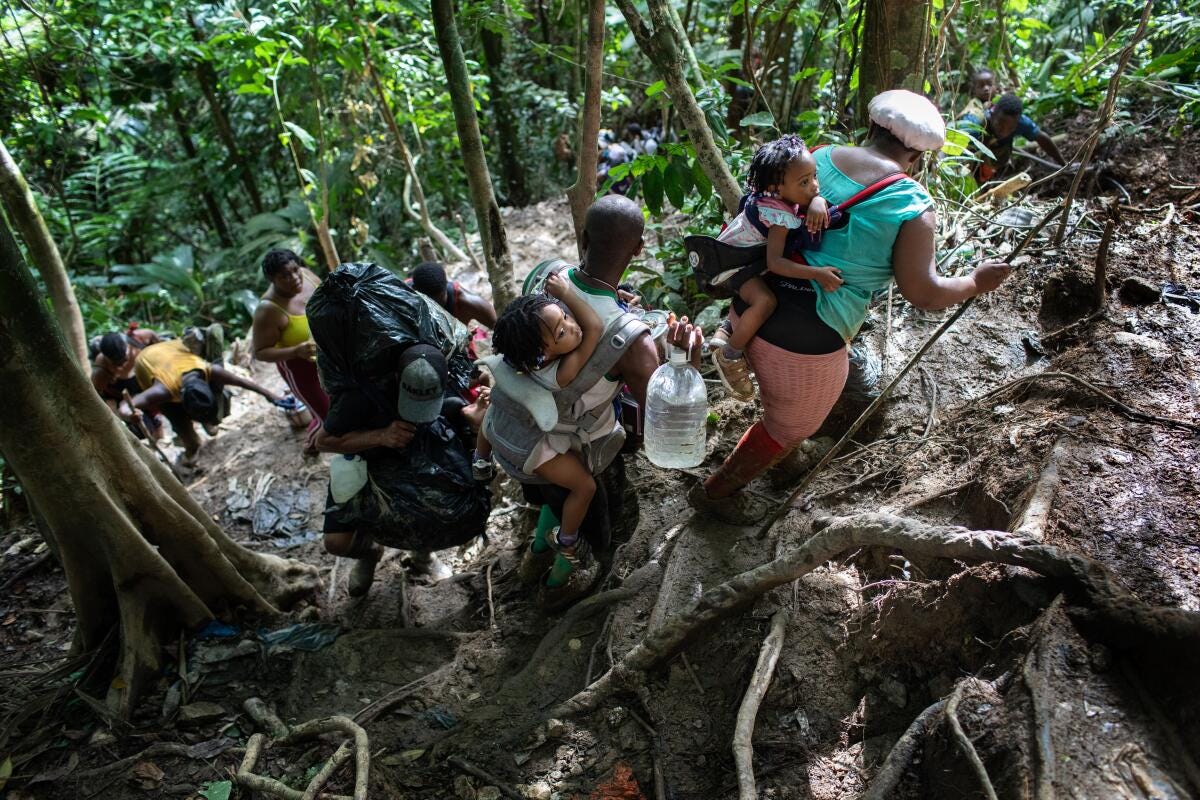Each new generation born is, in effect, an invasion of civilization by little barbarians who must be civilized before it is too late.
― Thomas Sowell, A Conflict of Visions: Ideological Origins of Political Struggles 1986
Spring Break
Last month, we visited the small towns and sea islands of Southern Georgia. If you watched any of the Masters’ golf from nearby Augusta recently, you will know Georgia’s perfect weather and scenery at this time of year. It didn’t disappoint.
B&B
South of Savannah is a colonial-era guest house in Darien, population 1,558, a short drive from Brunswick. A sleepy enclave with almost as many churches as houses, Darien was the most Southern British colonial fort in the early 18th Century, allowing the pioneering settlers to develop a river port to export valuable local lumber to the Northern colonies and Europe. It thrived, and by the mid-1800s, the Bank of Darien had become one of the largest in the Southern States until it wasn’t. But that’s a different story about America’s regional banks.
Self Starter
Our host, Karen, was a tiny woman in her early 70s with fierce blue eyes who spoke quickly and engagingly. After cooking breakfast of grits and shrimp (it’s a thing in these parts), she recounted much of her life story. Suffering abuse by her father from a young age was followed by a violent first marriage (and we were still only a few minutes in).
God's Work
Finding Jesus gave her confidence and self-reliance. Always choosing to work for herself, she remained unaligned to the dozens of local variants of Christian belief that Darien has to offer. Working as a real estate agent, Karen won the instruction to sell a dilapidated colonial clapper board house in which she could arouse no interest. So, she decided to buy, restore, and open it as a B&B.
Staying Safe
That was twenty years ago; today, she runs a thriving multi-site hospitality business employing more than 20 people, for which she said she was recently offered $7m. But she is not interested in retiring; she loves her work and does not need the money. She has a house a few miles away where she keeps her dogs, a three-year supply of food and water, and several guns with plenty of ammo. As she described this last bit, you would think it was the most normal thing in the world. From whom was she protecting herself? The federal government of the United States of America is who.
We're From the Government
You might ask why Karen feels the need to prepare in this manner. Well, in these parts, history casts its shadow. In June 1863, Federal forces in the form of the 54th Massachusetts Volunteers under Col. Robert G. Shaw and the 2nd South Carolina Volunteers under Col. James Montgomery based on St Simon’s Island paid a visit to Darien, looted it and burnt it to the ground after most of its 500 residents had fled into the nearby salt marshes. The 1989 film Glory, starring Matthew Broderick, Denzil Washington and Morgan Freeman, depicted this controversial pillaging.
Prepped
For our landlady, politics is less about the next US President than the local sheriff, school commissioners, and town mayor. With a strong sense of community, she had no hint of prejudice, except, maybe, for Federal Agents. Like the Darien citizens of 200 years ago and thousands of other small-town communities South of Richmond, Karen is at odds with the day’s prevailing political belief system. She would agree with the Sunday Times’ Matthew Syed that governments have succumbed to mindless compassion and must embrace realism as our future as a civilisation depends on it. As Thomas Sowell put it, we must recognise that there are no solutions to any of our problems, only trade-offs. The greatest perceived threat to her way of life for Karen is her government; she is ready for the day they or anybody else try to take it from her.
Scotland Calling
The people of Darien come from hardy stock. A couple of hundred Scottish settlers founded Darien in 1736, initially called New Inverness, to establish a barrier to protect Savannah to the North from the Spanish settlements to the South. They chose the name Darien in memory of the Darien Scheme, a tragically unsuccessful former Scottish colony of 1697 in modern-day Panama, where nearly all the settlers perished. The Darien Scheme was not just a human tragedy but an economic and financial disaster for Scotland, and its social and political consequences still reverberate today.
Bitter Union
More than 300 years later, the Scots still bemoan their enforced union with the English in 1707 to create Great Britain under financial duress, which was caused in no small part by the collapse of the Company of Scotland and its failed operating subsidiary, The Darien Scheme. This early corporate failure is estimated to have wiped out 20% of Scotland’s savings. It was the Royal Bank of Scotland of its day, and the government bailout (such as it was) was a political union with the insufferable English.
Mind The Gap
The Darien Scheme settlers perished at a place that is today the focal point of the human migration from South America to the United States. Check the map; you can travel the 23,500 km road from Ushuaia in Southern Patagonia to Prudhoe Bay in Northern Alaska along the Trans America Highway System, except for one 100 km section, the so-called Darien Gap. The road is replaced by a hazardous path at the narrowest point, joining the two American continents. Straddling the Panama and Columbia border, this densely forested mountainous region spans a significant watershed and is a treacherous place to travel. However, the human desire for a better future can be made blind to such details. Last year saw a massive increase in the number of migrants entering the US via its southern border, with an increasing number trekking across the Darien Gap; tragically, many do not survive the journey. Venezuela accounts for a growing proportion of this migration trail and the Gap’s rising death toll.
Starving Migrants
The original New Darien Scottish settlers fled destitution after several years of crop failures and widespread famine. Known as the Seven Ill Years, it is estimated that a fifth of Scotland’s population were forced into “begging and vagrancy.” So, too, the wave of migrants from Venezuela today flee a failed state, unable to feed themselves and their families. Despite the risks of trekking through the Darien Gap, today’s migrants have greater chances of survival than those poor Scottish peasants.
Into the Unknown
Faced with starvation, thousands of Scots fled their homeland in the last decade of the 17th Century. Many made the short trip to the relative safety of Ulster, but many were prepared to risk journeys into the literal unknown. The original 1,200 New Darien settlers, including the crew, were only told where they were going when they had reached Madeira and allowed to open sealed instructions from the Company of Scotland. Within a year of landing, 80% were dead.
Feast & Famine
Venezuela and its neighbour Guyana enjoy some of the world’s most geologically fertile hydrocarbon reserves. However, whereas Venezuela has a history of squandering its oil wealth, Guyana is enjoying life-changing economic growth driven by the development of massive offshore reserves. Of these neighbours with shared geology, one has been the most disastrous economy in the world, and the other its most successful. Venezuela has had several years of 20-40% GDP declines, while more recently, Guyana has had several years of 30-60% GDP growth, a juxtaposition that should make for a fascinating piece of journalism.
Let me stop you right there
A few weeks ago, BBC’s Steven Sackur interviewed Irfaan Ali, Guyana’s president, for the HardTalk programme. However, the hard talking did not cover the state of collapse of his South American neighbours and its unfolding human tragedy. Having begun the interview by questioning whether Guyana could manage its hydrocarbon largesse “wisely”, the BBC interviewer continued his condescending tone and lectured Mr Ali about the carbon emission implications of Guyana’s hydrocarbon plans. At this point, Mr Ali understandably took exception and returned fire on Mr Sackur. It makes for compelling but cringe-worthy viewing and highlights the trade-offs between prioritising a perceived view of the planet’s best interests and human flourishing. This clip went viral.
Survivorship
Forty years after the Darien Scheme settlers perished, religious freedom and the chance to create a new way of life were the main incentives for the settlers of Darien, Georgia. For those who survived and their ancestors, such as Karen, the life they had hewn will not be taken from them easily, whoever tries.
Skin in the Game
Our desire to survive, flourish and become fulfilled runs through the long arc of human history. It is undimmed by the overwhelming natural forces of entropy and the many ideological forces for its suppression. Those fortunate to inhabit the Western world and live fulfilled lives do so because of the risks taken by our forebears, whether in the form of famine in the Scottish Highlands or religious persecution from absolute monarchs.
How Dare You
Today, however, we have allowed ourselves to be subsumed by a new Cultural Revolution as potentially lethal as the Maoist version. As fund manager Barry Norris puts it, Many European companies are choosing to list in the US, where ESG reporting requirements are less onerous; smaller companies will not go public due to the extra compliance costs, whilst profitable old economy companies – shunned by public markets – will go private. We can have thriving European capital markets, or we can have ESG…. [and] what constitutes virtuous corporate behaviour is now decided by an unaccountable nomenklatura, who, like a youthful cadre of Maoist Red Guards, exercise their ESG tyranny across corporations and financial institutions.
New Divide
In Darien, Georgia, Karen is fully prepared to defend her right to drive her gas-guzzling pick-up truck until her dying day. The new ideological forces against her include Steven Sackur, the professional army of ESG true believers, plus Just Stop Oil and Extinction Rebellion, all determined to impose a new way of life on us that a growing number reject. Increasingly, in this global year of elections, politicians seem to be slowly waking up to this reality.
The End of the World as we Know it
Cambridge history professor Helen Thompson put it last year: Today, our society’s four basic physical pillars — ammonia, cement, plastics and steel — are primarily produced using fossil fuels. So, net zero requires reinventing modern civilisation. It requires transforming the energy basis of our way of life within less than three decades [for which] there is no precedent in human history.
Counter Revolution
Recently, an 80-minute documentary called Climate: The Movie circulated online. (Watch it before it is taken down.) It is a stinging critique of consensus climate alarmism, with contributions from credentialed scientists highlighting the oxymoronic view that the science is settled. However, the West has mindlessly accepted this fallacious belief system as gospel, and its consequences are about to catch up with us. As the blogger Doomberg says, energy is life and humanity’s ability to flourish is directly proportinate to the quantity of energy each of us can control. It is the foundation of our existence.
Texit
In the month that Alex Garland’s film Civil War launched in cinemas depicting a world where Texas and California have seceded from the union, a recent YouGov poll shows that the popularity for state independence is highest among the citizens of Alaska (36%) and Texas (31%), two significant oil-producing states. Unsurprisingly, the Texan Nationalist Movement (TNM) don’t see the film as implausible as most movie critics seem to. With its 30m population and economy, which would make it the eighth largest in the world ahead of Canada and Mexico, the idea of Texas as an independent state polls among its inhabitants at a similar level that Brexit did in the UK at the turn of the millennia. TMN’s leader, Daniel Miller, told the Times recently, “Texas’ constitution requires it to have a balanced budget. We must get off the [Federal] debt merry-go-round and allow Texans’ tax money to stay in the state.”
Our landlady in Darien would approve.
Jeremy











